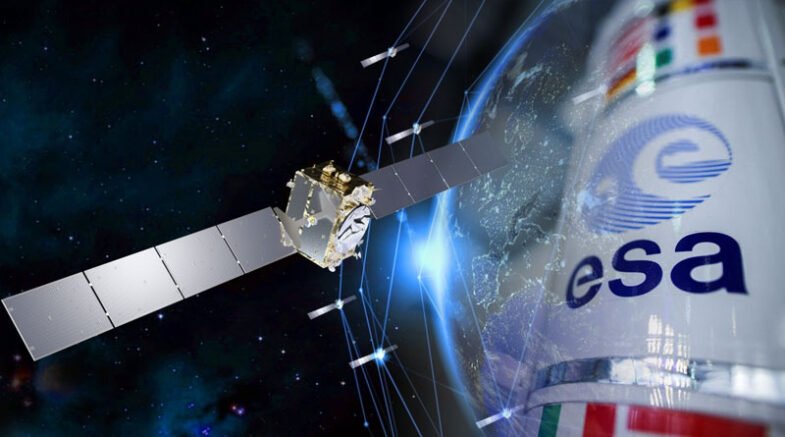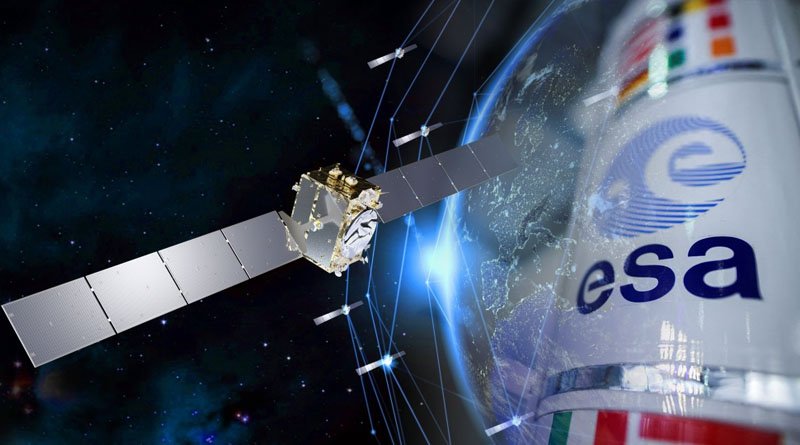The G2STB project, which capitalises and builds on the legacy of important G1G legacy system tools, will ensure a seamless transition from the Galileo G1G to G2G.

Technology multinational GMV has been given a contract by the European Space Agency (ESA), acting on behalf of the European Union Agency for the Space Programme (EUSPA), and in the name of the European Union as represented by the European Commission (COM), for the development of the Galileo Second Generation System Test Bed (G2STB).
In support of its role as Galileo System Development Prime, the G2STB will offer ESA a crucial system verification and validation facility, enabling a variety of Galileo system monitoring, troubleshooting, prototyping, and experimentation activities.
The G2STB project, which capitalises and builds on the legacy of important G1G legacy system tools, will ensure a seamless transition from the Galileo First Generation (G1G) to Second generation (G2G). One of the crucial infrastructure components that ESA is creating in particular for the proper operation of the Galileo Second generation satellites is the G2STB.
With numerous technological advancements, this new generation of satellites represents a significant advancement for the Galileo constellation. To guarantee that the crucial technological components needed in the G2G ground segment are adequately covered, ESA has prepared new procurements.
The Time and Geodetic Validation Facility and the Galileo System Evaluation Equipment (GALSEE) are two existing G1G facilities that the G2STB will eventually replace and upgrade with cutting-edge capabilities (TGVF-X).
During the Galileo Exploitation Phase, the latter, which GMV developed and has been running for the past ten years, was crucial in monitoring the Galileo signals and system validation activities.
The early validation of new features and components being introduced in current and upcoming Galileo System updates is another benefit of the TGVF-X. Over the course of five years, GMV will deliver four major G2STB versions using an iterative development methodology and continuous evolution based on Scaled Agile Framework (SAFe).
With the help of this methodology, the G2STB’s various System capability Prototyping Modules (ScPMs) will be developed continuously. The G2 HAS data generator and monitor is one of these modules that is crucial because it aims to improve the Galileo High Accuracy Service (HAS), which was recently declared operational and for which GMV also played a significant role.
Other G2 Early Capabilities of the G2STB include a Time Service Monitoring module, an Integrity Support Message generator, a Signal Authentication Service (SAS)/Authentication validation module, an Emergency Warning Service (EWS) module, an ISL simulator, and a G2G message composer. These modules are capable of processing data from inter satellite links.
The G2STB will ensure that the network of Galileo Experimental Sensor Stations (GESS) is upgraded in tandem with the development phase to accommodate the new signals and capabilities, ensuring the availability of a G2-capable global multi-configuration network of receivers and bit-grabbers that is independent of the operational Galileo Sensor Stations (GSS).
GMV will serve as the project’s executive sponsor and manage a group of more than 20 partners, including Thales Alenia Space Italy as a core team member and a total of 20 organisations from 8 different European nations. Without a doubt, this accomplishment solidifies GMV’s position as a leading participant in the Galileo programme.
Miguel Romay, the general manager of GMV’s navigation systems, said, “We are pleased that ESA has once again relied on the knowledge and skills of GMV. The great work GMV has done over the past ten years as a key partner in the development, implementation, and maintenance of the Galileo system will undoubtedly be highlighted by this new contract.”
The G2 System Test Bed (G2STB) is the first of a wide set of Galileo Second Generation key procurements that will ensure Europe remains the leader of GNSS services in the next two decades.
It will play a critical role in the definition and optimization of all Galileo service improvements and new G2 service capabilities, which will be validated as soon as the first G2 satellites are launched.
The contract ceremony was held on March 10 in GMV’s headquarters offices, with Jesús Serrano, Miguel Romay, Satellite Navigation Systems General Manager, and Ennio Guarino and Miguel Manteiga Bautista representing the European Space Agency.
